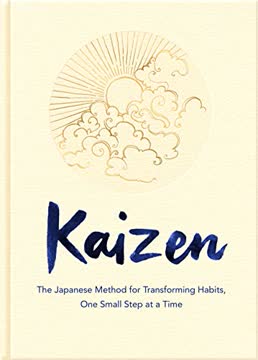نکات کلیدی
1. مغز برندگان قابل تطبیق و مقاوم است
"مغز برنده یک موجود ثابت نیست، بلکه یک کار در حال پیشرفت است."
انعطافپذیری عصبی کلید است. مغز انسان توانایی شگفتانگیزی برای تطبیق و تغییر در طول زندگی دارد. این انعطافپذیری به برندگان اجازه میدهد که به طور مداوم یاد بگیرند، رشد کنند و بر چالشها غلبه کنند.
- نمونههایی از انعطافپذیری عصبی:
- یادگیری مهارتهای جدید
- بهبودی از آسیبهای مغزی
- توسعه عادتهای جدید
برندگان این قابلیت تطبیق را با:
- پذیرش یادگیری مادامالعمر
- جستجوی تجربیات نو
- به چالش کشیدن خود به طور منظم
با درک و بهرهبرداری از انعطافپذیری مغز، هر کسی میتواند ذهنیت برنده را توسعه دهد و در جنبههای مختلف زندگی به موفقیتهای بیشتری دست یابد.
2. تمرکز و توجه برای موفقیت حیاتی است
"توجه دروازهای به تمام تفکر است."
تمرکز لیزری اهمیت دارد. در دنیای پر از حواسپرتی امروز، توانایی تمرکز بر وظایف مهم یک مزیت رقابتی قابل توجه است. برندگان مغز خود را برای حفظ توجه پایدار و مقاومت در برابر حواسپرتیها آموزش میدهند.
استراتژیهایی برای بهبود تمرکز:
- تمرین مدیتیشن ذهنآگاهی
- استفاده از تکنیک پومودورو برای مدیریت زمان
- حذف حواسپرتیهای غیرضروری در محیط
با تقویت تمرکز خود، برندگان میتوانند:
- وظایف را به طور مؤثرتری انجام دهند
- تصمیمات بهتری بگیرند
- به راحتی به حالت جریان دست یابند
توسعه مهارتهای توجه قوی برای هر کسی که به دنبال برتری در زندگی شخصی و حرفهای خود است، ضروری است.
3. سیستمهای حافظه میتوانند برای عملکرد اوج بهینه شوند
"حافظه فقط به یادآوری حقایق مربوط نمیشود؛ بلکه به ایجاد ارتباطات و دیدن الگوها مربوط است."
حافظه را به طور استراتژیک تقویت کنید. برندگان درک میکنند که حافظهای که به خوبی عمل میکند برای یادگیری، حل مسئله و تصمیمگیری حیاتی است. آنها از تکنیکهای مختلفی برای بهینهسازی سیستمهای حافظه خود استفاده میکنند.
استراتژیهای مؤثر حافظه:
- استفاده از وسایل یادآوری
- تمرین تکرار فاصلهدار
- ایجاد تصاویری زنده در ذهن
مزایای حافظه بهینهشده:
- یادگیری و کسب مهارت سریعتر
- بهبود تواناییهای تفکر انتقادی
- افزایش خلاقیت از طریق شناسایی الگوها
با در نظر گرفتن حافظه به عنوان یک مهارت قابل توسعه به جای یک ویژگی ثابت، برندگان در پیگیریهای خود برتری قابل توجهی کسب میکنند.
4. انگیزه کلید دستیابی به اهداف بلندمدت است
"انگیزه فقط به خواسته مربوط نمیشود؛ بلکه به تبدیل خواسته به عمل مربوط است."
انگیزه درونی را به کار بگیرید. برندگان انگیزه عمیق و درونی را پرورش میدهند که آنها را در برابر چالشها و شکستها پایدار نگه میدارد. آنها درک میکنند که انگیزه یک حالت ثابت نیست، بلکه مهارتی است که باید توسعه و حفظ شود.
تکنیکهایی برای افزایش انگیزه:
- تعیین اهداف واضح و معنادار
- تقسیم اهداف بزرگ به وظایف کوچک و قابل مدیریت
- جشن گرفتن پیروزیهای کوچک در طول مسیر
تأثیر انگیزه قوی:
- افزایش پایداری در برابر موانع
- سطوح بالاتر تولید و کارایی
- رضایت کلی بیشتر از زندگی
با تسلط بر هنر خودانگیزشی، برندگان اطمینان حاصل میکنند که سوخت لازم برای پیگیری آرزوهای خود را به طور مداوم دارند.
5. هوش هیجانی تصمیمگیری را بهبود میبخشد
"هیجانات موانع تفکر منطقی نیستند، بلکه اجزای ضروری آن هستند."
از هیجانات به طور هوشمندانه استفاده کنید. برندگان اهمیت هوش هیجانی را در مدیریت موقعیتهای اجتماعی پیچیده و اتخاذ تصمیمات صحیح درک میکنند. آنها توانایی شناسایی، درک و مدیریت هیجانات خود و دیگران را توسعه میدهند.
جنبههای کلیدی هوش هیجانی:
- خودآگاهی
- خودتنظیمی
- همدلی
- مهارتهای اجتماعی
مزایای هوش هیجانی بالا:
- بهبود روابط و ارتباطات
- تواناییهای بهتر در حل تعارض
- مهارتهای رهبری بهبود یافته
با پرورش هوش هیجانی، برندگان میتوانند تصمیمات متعادلتری بگیرند و روابط قویتر و مؤثرتری در حوزههای شخصی و حرفهای بسازند.
6. پیشدستی و ابتکار رفتارهای برنده را به حرکت درمیآورد
"برندگان منتظر فرصتها نمیمانند؛ آنها آنها را خلق میکنند."
سرنوشت خود را در دست بگیرید. افراد موفق درک میکنند که انتظار برای لحظه مناسب یا اینکه شخص دیگری اقدام کند، اغلب به از دست دادن فرصتها منجر میشود. آنها ذهنیت پیشدستی را پرورش میدهند و ابتکار عمل را برای شکلدهی به شرایط خود به کار میگیرند.
راههای توسعه پیشدستی:
- پیشبینی چالشهای آینده و آمادهسازی برای آنها
- تعیین اهداف شخصی و مهلتها
- پذیرش ریسکهای محاسبهشده
تأثیر پیشدستی:
- افزایش کنترل بر زندگی و حرفه خود
- سطوح بالاتر دستاورد و موفقیت
- تابآوری بیشتر در برابر شکستها
با پذیرش رویکرد پیشدستی، برندگان خود را در موقعیتی قرار میدهند که بتوانند فرصتها را به دست آورند و موانع را مؤثرتر از رقبای منفعل خود پشت سر بگذارند.
7. خودآگاهی اساس رشد شخصی است
"شناخت خود آغاز همه حکمتهاست."
درک کارکردهای درونی خود. برندگان خودآگاهی را به عنوان سنگ بنای توسعه شخصی در اولویت قرار میدهند. آنها به طور منظم به افکار، هیجانات، رفتارها و انگیزههای خود فکر میکنند تا بینشهایی درباره نقاط قوت و ضعف خود به دست آورند.
روشهایی برای افزایش خودآگاهی:
- تمرین ذهنآگاهی و مدیتیشن
- نگهداری یک دفترچه برای خوداندیشی
- درخواست بازخورد از دوستان و مشاوران مورد اعتماد
مزایای خودآگاهی بالا:
- بهبود تصمیمگیری متناسب با ارزشهای شخصی
- توانایی بهتر در مدیریت استرس و هیجانات
- روابط و تعاملات واقعیتر
با پرورش درک عمیق از خود، برندگان میتوانند انتخابهای هدفمندی انجام دهند و به طور مداوم به سمت خود ایدهآل خود پیشرفت کنند.
8. خلاقیت و نوآوری سوخت موفقیت هستند
"خلاقیت هوش در حال تفریح است."
تفکر نوآورانه را در آغوش بگیرید. برندگان درک میکنند که خلاقیت و نوآوری برای متمایز شدن در یک دنیای رقابتی ضروری هستند. آنها به طور فعال تواناییهای خلاقانه خود را پرورش میدهند و به دنبال دیدگاهها و ایدههای جدید هستند.
استراتژیهایی برای افزایش خلاقیت:
- شرکت در تجربیات و یادگیریهای متنوع
- تمرین تکنیکهای طوفان فکری و تفکر جانبی
- همکاری با افرادی از زمینههای مختلف
تأثیر پرورش خلاقیت:
- رویکردهای منحصر به فرد در حل مسئله
- توسعه محصولات یا خدمات نوآورانه
- توانایی سازگاری با محیطهای در حال تغییر
با پرورش تواناییهای خلاقانه خود، برندگان میتوانند ایدههای تازهای تولید کنند، چالشها را به شیوههای نوین پشت سر بگذارند و نوآوری را در زمینههای خود به حرکت درآورند.
9. مدیریت استرس برای حفظ ذهنیت برنده ضروری است
"این استرس نیست که ما را میکشد، بلکه واکنش ما به آن است."
پاسخ به استرس را تسلط یابید. برندگان درک میکنند که استرس بخشی اجتنابناپذیر از زندگی است، اما آنها استراتژیهای مؤثری برای مدیریت و حتی بهرهبرداری از آن برای نتایج مثبت توسعه میدهند. آنها استرس را به عنوان یک چالش به جای یک تهدید میبینند.
تکنیکهای مؤثر مدیریت استرس:
- تمرین ورزش منظم و فعالیت بدنی
- استفاده از روشهای آرامشبخش مانند تنفس عمیق یا آرامش عضلانی تدریجی
- حفظ تعادل سالم بین کار و زندگی
مزایای مدیریت خوب استرس:
- بهبود سلامت روانی و جسمی
- افزایش تابآوری و انعطافپذیری
- افزایش تولید و تمرکز
با یادگیری مدیریت مؤثر استرس، برندگان میتوانند عملکرد اوج خود را حتی در شرایط فشار بالا حفظ کنند و از فرسودگی در درازمدت جلوگیری کنند.
آخرین بهروزرسانی::
FAQ
1. What’s "The Winner’s Brain" by Jeff Brown about?
- Science of Success: The book explores how neuroscience and psychology explain the habits and strategies of highly successful people, termed as having a "Winner’s Brain."
- Brain-Based Strategies: It presents eight key "Win Factors" and five "BrainPower Tools" that can be developed to optimize brain function for achievement.
- Real-Life Examples: The authors use stories from diverse high achievers—athletes, artists, business leaders—to illustrate how these brain strategies work in practice.
- Practical Application: The book offers actionable advice, exercises, and self-assessments to help readers rewire their own brains for greater success.
2. Why should I read "The Winner’s Brain" by Jeff Brown?
- Evidence-Based Approach: The book is grounded in the latest neuroscience and psychological research, making its advice credible and actionable.
- Universal Relevance: Its strategies are designed for anyone seeking personal or professional growth, regardless of background or starting point.
- Focus on Change: It dispels the myth that success is only for the innately talented or lucky, emphasizing that anyone can develop a Winner’s Brain.
- Practical Tools: Readers gain access to quizzes, exercises, and real-world tactics to immediately start improving their brain’s performance.
3. What are the key takeaways from "The Winner’s Brain"?
- Success Is Trainable: High achievement is less about IQ or luck and more about specific, learnable brain strategies and habits.
- Eight Win Factors: Self-Awareness, Motivation, Focus, Emotional Balance, Memory, Resilience, Adaptability, and Brain Care are the pillars of a Winner’s Brain.
- Five BrainPower Tools: Opportunity Radar, Optimal Risk Gauge, Goal Laser, Effort Accelerator, and Talent Meter are essential cognitive skills for success.
- Neuroplasticity Matters: The brain can be reshaped at any age through deliberate practice, mindset shifts, and healthy habits.
4. What is the definition of a "Winner’s Brain" according to Jeff Brown?
- Distinct Brain Function: A Winner’s Brain operates differently from the average brain, showing greater efficiency, adaptability, and focus.
- Not Born, But Built: It’s not an inborn trait; rather, it’s developed through conscious strategies and repeated behaviors.
- Enjoys the Journey: Winners not only achieve their goals but also find fulfillment in the process and often contribute positively to others.
- Measurable Differences: Advances in brain imaging show that Winner’s Brains have unique patterns of neural activity and structure.
5. What are the "BrainPower Tools" in "The Winner’s Brain" and how do they work?
- Opportunity Radar: The ability to spot and seize opportunities, even when disguised as problems or setbacks.
- Optimal Risk Gauge: Skill in evaluating risks, knowing when to take bold action and when to hold back.
- Goal Laser: The capacity to maintain focus on long-term objectives, resisting distractions and persevering through challenges.
- Effort Accelerator: The drive to sustain effort and motivation, even during mundane or difficult tasks.
- Talent Meter: Accurate self-assessment of strengths and weaknesses, enabling targeted improvement and leveraging of abilities.
6. What are the eight "Win Factors" in "The Winner’s Brain" and why are they important?
- Self-Awareness: Understanding oneself, including strengths, weaknesses, and how one is perceived by others.
- Motivation: The internal drive to pursue and achieve meaningful goals, even in the face of obstacles.
- Focus: The ability to concentrate attention, filter distractions, and prioritize effectively.
- Emotional Balance: Managing emotions constructively, using them to enhance rather than hinder performance.
- Memory: Leveraging past experiences and knowledge to inform future decisions and actions.
- Resilience: Bouncing back from setbacks, reframing failures as opportunities for growth.
- Adaptability: Embracing change and continuously reshaping the brain and behavior for ongoing success.
- Brain Care: Maintaining brain health through exercise, nutrition, sleep, and mental stimulation.
7. How does "The Winner’s Brain" explain the role of neuroplasticity in achieving success?
- Brain Is Malleable: The book emphasizes that the brain can change its structure and function throughout life, not just in childhood.
- Deliberate Practice: Repeated, focused practice of new skills or mindsets leads to physical changes in the brain’s neural pathways.
- Real-World Examples: London cab drivers, musicians, and others are shown to have measurable brain changes due to their training and experience.
- Empowerment: Understanding neuroplasticity gives readers the confidence that they can improve their abilities at any age.
8. What practical strategies does "The Winner’s Brain" offer for developing a Winner’s Brain?
- Self-Assessment: Tools like the Winner’s Profile Quiz help identify current strengths and areas for growth.
- Brainstorms: The book provides actionable exercises—such as mindfulness, visualization, and feedback-seeking—to build Win Factors.
- Habit Formation: Emphasizes the importance of consistent practice, scaffolding complex skills, and breaking tasks into manageable steps.
- Lifestyle Changes: Recommends physical activity, healthy eating, adequate sleep, and mental challenges to support brain health.
9. How does "The Winner’s Brain" address common obstacles like procrastination, failure, and lack of motivation?
- Concrete Techniques: Offers methods like breaking tasks into small steps, reframing failures, and using short-term rewards to overcome procrastination.
- Resilience Training: Encourages viewing setbacks as learning opportunities and finding role models who exemplify bouncing back.
- Motivation Cycles: Explains the brain’s "map, rev, drive" process for sustaining motivation and how to leverage both intrinsic and extrinsic rewards.
- Emotional Regulation: Teaches strategies for managing negative emotions and maintaining focus under stress.
10. What scientific research and real-life stories does "The Winner’s Brain" use to support its advice?
- Neuroscience Studies: Cites fMRI, EEG, and other brain imaging research to show how different brain regions contribute to success traits.
- Psychological Experiments: References studies on motivation, memory, attention, and resilience to back up practical recommendations.
- Interviews with Winners: Features stories from Olympic athletes, artists, business leaders, and everyday people who exemplify the Win Factors.
- Historical Cases: Discusses famous neuroscience cases (e.g., Phineas Gage, Patient H.M.) to illustrate how brain changes affect behavior.
11. What are the best quotes from "The Winner’s Brain" and what do they mean?
- “You can think your way to success.” — Emphasizes the power of intentional thought and mental strategies in achieving goals.
- “Winners are not born, they are made.” — Reinforces the book’s core message that success is accessible to anyone willing to develop the right habits.
- “The brain is constantly revising itself throughout a lifetime.” — Highlights the ongoing potential for growth and change at any age.
- “Resilience is about getting up one more time than anyone else.” — Underlines the importance of persistence and learning from setbacks.
12. How can I start applying the lessons from "The Winner’s Brain" by Jeff Brown in my own life?
- Take the Winner’s Profile Quiz: Assess your current BrainPower Tools and identify areas for improvement.
- Choose One Win Factor: Focus on developing one trait at a time, such as Motivation or Focus, using the book’s exercises.
- Practice Brain Care: Incorporate regular exercise, healthy eating, sufficient sleep, and mental challenges into your routine.
- Reflect and Adjust: Regularly seek feedback, track your progress, and be willing to adapt your strategies as you grow.
نقد و بررسی
کتاب ذهن برنده نظرات متفاوتی را به خود جلب کرده است. بسیاری از خوانندگان آن را آموزنده و انگیزشی میدانند و از ترکیب علم اعصاب و مشاورههای خودیاری در آن تقدیر میکنند. آنها به استراتژیهای عملی برای توسعه یک ذهنیت موفق توجه دارند. با این حال، برخی منتقدان بر این باورند که کتاب از نظر اصالت و عمق کمبود دارد و مفاهیم تکراری از دیگر آثار خودیاری را بازگو میکند. توضیحات علمی بسته به خواننده، یا روشنگرانه یا بیش از حد پیچیده تلقی میشود. به طور کلی، این کتاب به عنوان یک مقدمه مناسب برای تکنیکهای بهینهسازی مغز شناخته میشود، هرچند نظرات در مورد کارایی و منحصر به فرد بودن آن متفاوت است.












